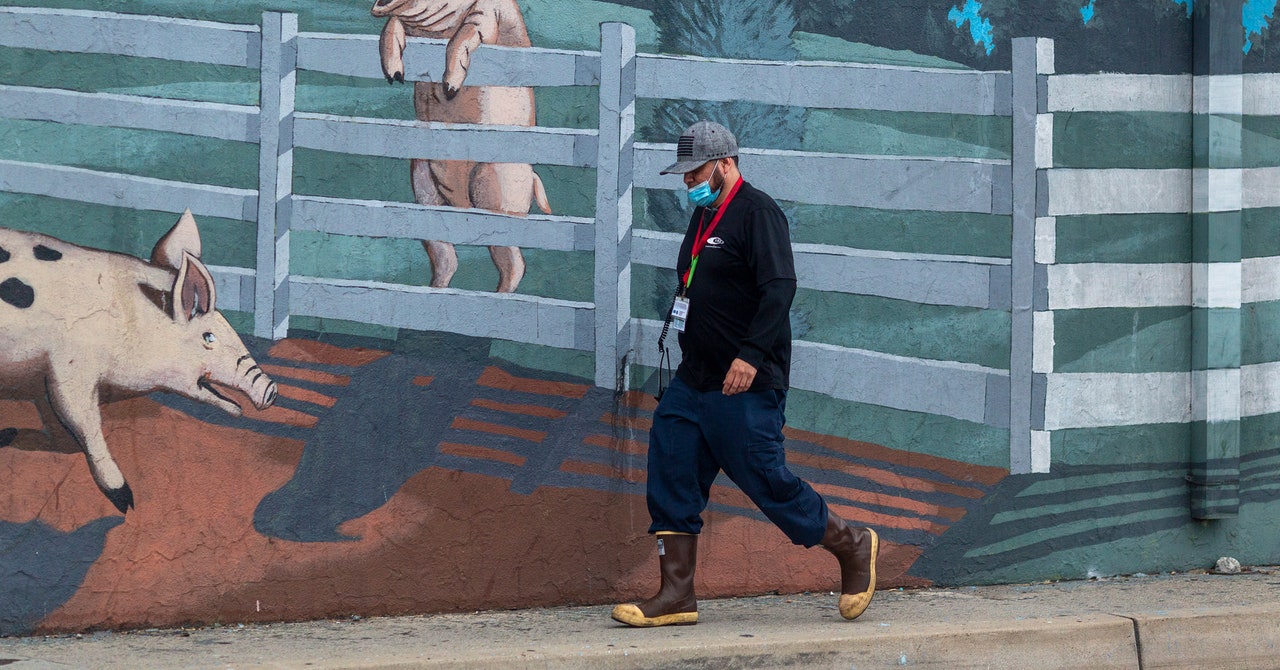As businesses reopen, many of the 40 million people who lost jobs in the past three months could soon face a dilemma: return to work and risk their safety or lose their job and income.
On Friday the US Labor Department said employers unexpectedly added 2.5 million jobs last month, after a devastating decline in April. Economists expect more jobs to come back as officials in more places ease lockdown orders aimed at suppressing the coronavirus.
Laws vary by state, but for most workers, refusing a call to return to work would bar them from receiving unemployment benefits, even if they don’t feel safe. Worker advocates have asked the federal government for a singular definition of a safe workplace, but President Trump has said repeatedly that states should make decisions around safety.
Read all of our coronavirus coverage here.
“I have considered not returning to work, but what options do I really have?” asks Dustin Schaffer, an IT worker in Pottsville, Pennsylvania. Schaffer was furloughed on March 20. On April 27, he returned to work remotely. Schuylkill County, where he lives and works, has entered its “yellow phase” of Pennsylvania’s reopening plan, and Schaffer expects to soon be asked to return to his office. He’s raised concerns with his employer but has not heard specifics of how the company plans to keep IT workers safe.
“Being a small office building, it is impossible not to come in contact or pass by at least 10 to 20 other employees in a day,” he says. “Sanitizing definitely was not a priority, or even thought about, when it came to IT equipment being passed from employee to employee, location to location.”
In general, state and local officials will decide when businesses may reopen. In April, Trump told reporters that governors should “call those shots” instead of federal officials. Last week a group of Senate democrats, including Senators Elizabeth Warren and Bernie Sanders, called on the Occupational Safety and Health Administration (OSHA) to conduct more on-site investigations and respond to workers’ concerns of contracting Covid-19 on the job. OSHA, the senators wrote, “has largely abdicated its investigation and enforcement responsibilities for even existing standards.” A spokesperson for OSHA called the letter “grossly inaccurate” and said the agency “is committed to protecting American workers during the pandemic, and OSHA has been working around the clock to that end.”
“We need a very clear set of conditions for what makes a workplace safe,” says David Muraskin, an attorney with Public Justice, a nonprofit representing workers.
“It’s really hard for the employees to point to something and say, ‘You’re supposed to be doing this, and you’re not.’ What we need is something that says, ‘This is what a safe workplace looks like.’”
Some workers, dubbed “essential” by authorities, have faced the issue for months. This includes workers at meat-processing plants. The United Food and Commercial Workers International Union estimates more than 3,000 meatpacking workers nationwide have tested positive for the virus.
In Missouri, Muraskin represents workers at a Smithfield Foods plant who filed suit against their employer, seeking easier access to sick leave, more protective equipment, and less crowding on the line, among other changes. Three weeks later, a judge dismissed the case, finding that Smithfield took “significant steps” to reduce worker risk.
After the case was dismissed, Smithfield started testing workers routi

